It’s never a great sign when a game’s characters seem bored with what they’re asked to do.
At one point in Final Fantasy VII Remake, the members of Avalanche—a group of eco-terrorists that consists of a one-armed man named Barret, his bartender friend Tifa, and a mercenary called Cloud—spend about an hour navigating a maze of industrial catwalks twisting in a steel lattice high above the streets of their city home, Midgar. At first, the view is breathtaking and the area a novel spin on what, in the original Final Fantasy VII, was a straightforward mission. By the end of it, though, both Avalanche’s members and the player are pretty tired of the scenery. To pass this aerial labyrinth, they must traverse a twisting series of similar-looking bridges, stairways, and elevators, flipping the right switches to solve minor puzzles and fighting groups of enemies as they go. The characters complain about how monotonous this work is. When the section is done and they can finally exit the area, Barret says he’s glad it’s over. It’s far from the only time the cast complains about the tasks they’ve been given.
While many other parts of Remake are exhilarating realizations of the game’s conceptual promise, it’s sections like this—sequences where an initially exciting aesthetic or narrative beat is extended to the point of exhaustion—that best characterize the experience. Still, the aspects of Remake that avoid this problem, carefully balancing elaboration and restraint in interpreting the source material, are almost enough to make up for where the game falls flat. This is partially because, 23 years since its release on the PlayStation, Final Fantasy VII’s premise, characters, and atmosphere remain captivating—standing among Square Enix’s best-realized worlds and stories.
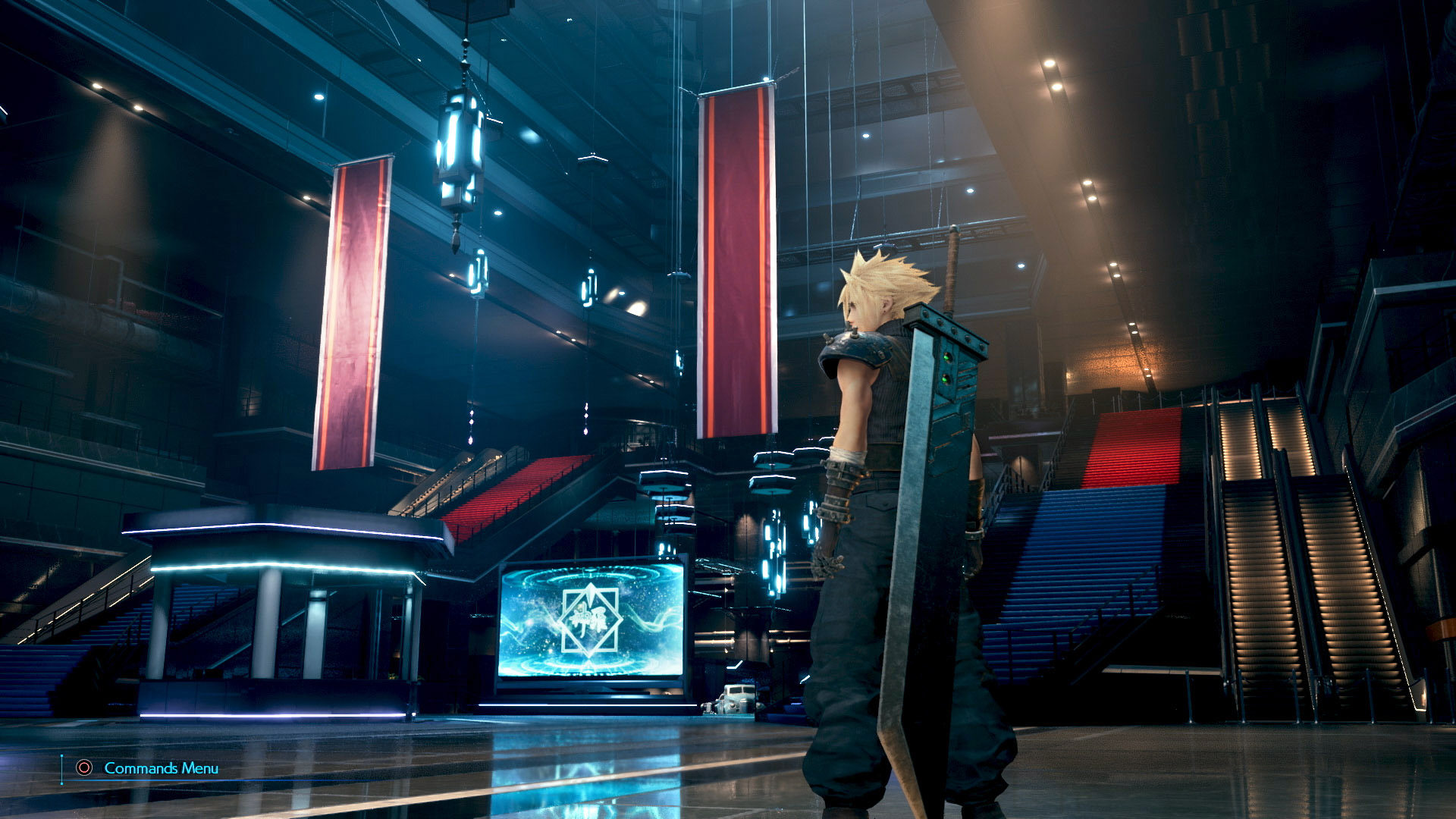
Remake’s plot largely follows in the original’s footsteps. As before, it tells the story of Avalanche as they work to sabotage the power company, Shinra, which maintains an authoritarian grip on Midgar’s residents by policing and supplying its populace with energy gathered in ecologically devastating reactors. Cloud, a brooding former special forces soldier, joins up with Avalanche at the beginning of the game and ends up working with them as an insurgent for hire. As the plot develops, the player uncovering bits of Cloud’s backstory, his relationship with Shinra and its mythical veteran soldier Sephiroth, Final Fantasy VII touches on the identity-fracturing confusion of living in an era of apocalyptic environmental collapse, seemingly unstoppable corporate power, terrorism, horrifying class disparity, and militarism. All of these subjects, however cartoonishly they’re presented, remain as relevant now as they were in the late ’90s.
This isn’t to say there aren’t changes, both big and small, to the original story. For one, the war with a foreign state called Wutai is brought up more frequently, providing greater context for the fears Midgar’s residents have about the reactor bombings carried out by Avalanche and updating the context of their insurgency in ways that reflect more strongly our modern politics and culture. Others are more drastic, introducing (without giving away some of the most surprising additions) new, coyly metatextual wrinkles to a story whose writers are, it becomes clear, well aware that Remake is a retelling of what has become a much beloved tale. Mostly, though, the differences between Final Fantasy VII’s two versions are the result of the bizarre decision to turn what was originally the first act of a game into its own, 30-plus hour debut instalment in a larger series.
Initially, this choice seems warranted. The first few hours of the game expand the original’s plot points in sensible ways. Escaping from one of Avalanche’s targets—a reactor that begins to fall apart with the team still inside—is still a desperate race against a ticking clock, and the scene’s biggest elaborations are confined to a greater sense that Cloud is within a building that’s beginning to crumble all around him. Characters who served only as one-note supporting players are given more to do as well, and in ways that enrich the game’s sense of place. Avalanche’s Biggs, Wedge, and Jessie have more discernible personalities, for instance. While Wedge doesn’t fare well as a walking fat joke, used more for comic relief than anything else, Jessie’s character (and crush on Cloud) is more fully realized—along with our understanding of Midgar’s sociopolitical dynamics—through scenes that come across as natural extensions to the story as told before.
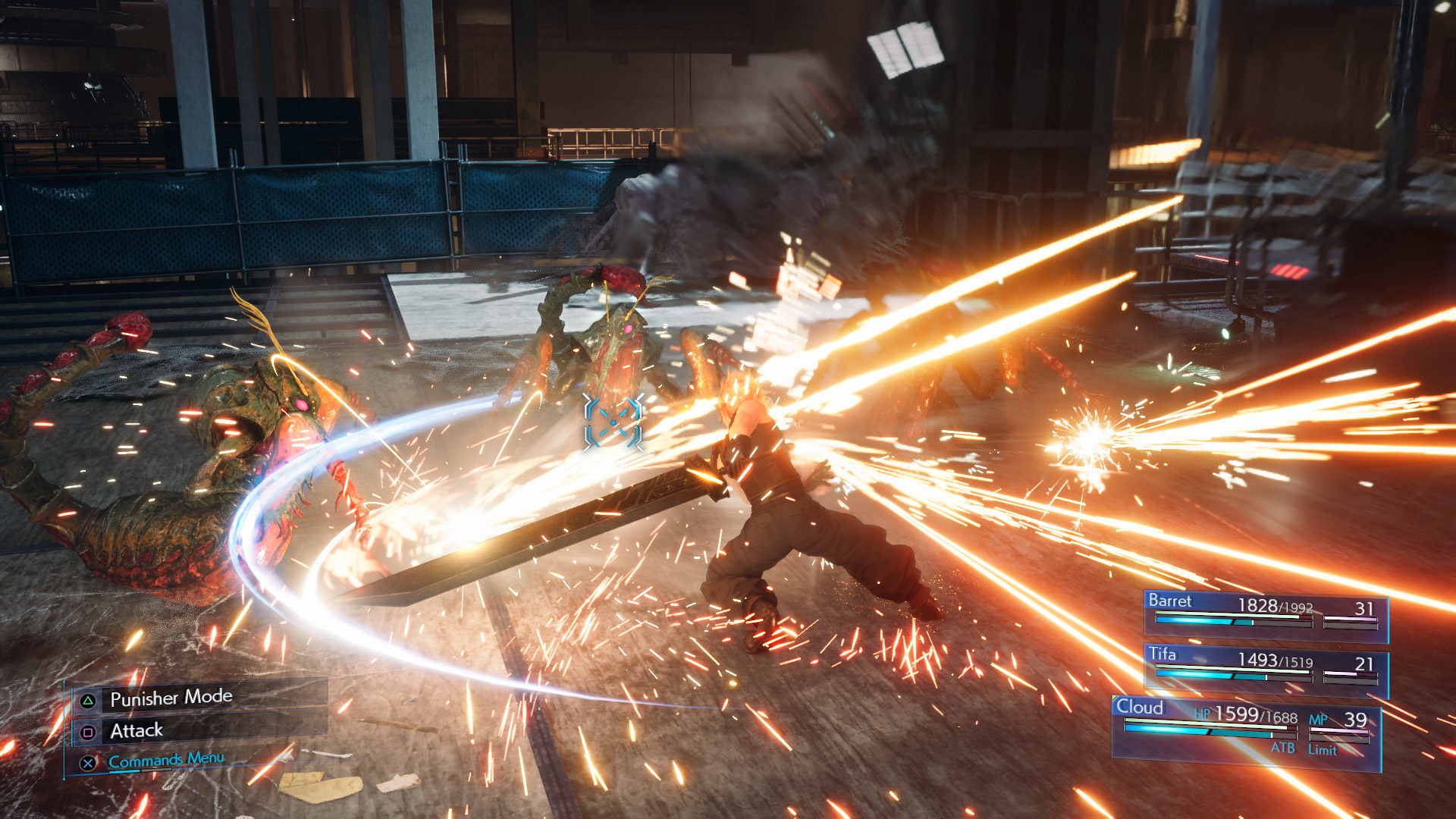
The combat system does well within this context, too. Rather than replicate the entirely menu-based design used in 1997, Final Fantasy VII Remake maintains its core features but naturally integrates exploration and fighting into a single mode of interaction. The player maintains direct control over one of three characters while fighting, hammering on attack buttons like an action game in one moment before pulling up a menu of additional commands—special moves, magic spells, items, and so on—when a timer at the bottom of the screen has filled up. Beneath each enemy’s health bar is another gauge that colors in as they’re disoriented by specific attacks, eventually causing them to enter states where they’re “pressured” and then staggered—essentially knocked over enough that they take extra damage. The system is smart, making it quicker to wipe out the weaker enemies that pop up most regularly while also introducing a level of on-the-fly tactical consideration during harder fights where players have to consider whether it’s best to dish out immediate pain or concentrate on bashing the enemy into a more vulnerable state. The fluid nature of the action-oriented combat design also means that the environments Cloud and his crew pick through come across like actual spaces, lived in by lifelike people, rather than, as in the source material, like a constantly unfolding diorama inhabited by Lego figurines.
Neither style is inherently better or worse, but Remake’s approach has led the game’s creators to fill larger spaces with more intricately detailed characters and locations. How that detail is used is, ultimately, where Remake alternately succeeds and fails across its runtime.
In some respects, the original story benefits enormously from greater fidelity. Sephiroth, no longer a stubby cartoon with puppet features, is more menacing here, with reptilian eyes and a sense of aloof menace that visually communicates his primordial nature and demigod’s knowledge of the world. Cloud, Tifa, Barret, Aerith, and Red XIII all emote more subtly through non-verbal expressions, and the city of Midgar itself—as much a starring character as any animate member of Final Fantasy VII’s cast—comes to life through a nearly palpable contrast between affluence and poverty. Densely packed, dusty-looking slums filled with rusted tin-walled shops and brick apartments lean against one another to create packed-dirt paths through junkyard mazes. These run-down neighborhoods are placed literally beneath the shadows of a suspended upper city where the better-off go to work in gleaming office buildings filled with clean edges, softly glowing holograms, and LED-lit cubicles before returning home to cozy houses on orderly suburban streets. The original game’s score becomes more dramatically resonant through modern technology, too, new renditions and arrangements growing grander through the instrumentation of a full orchestra.
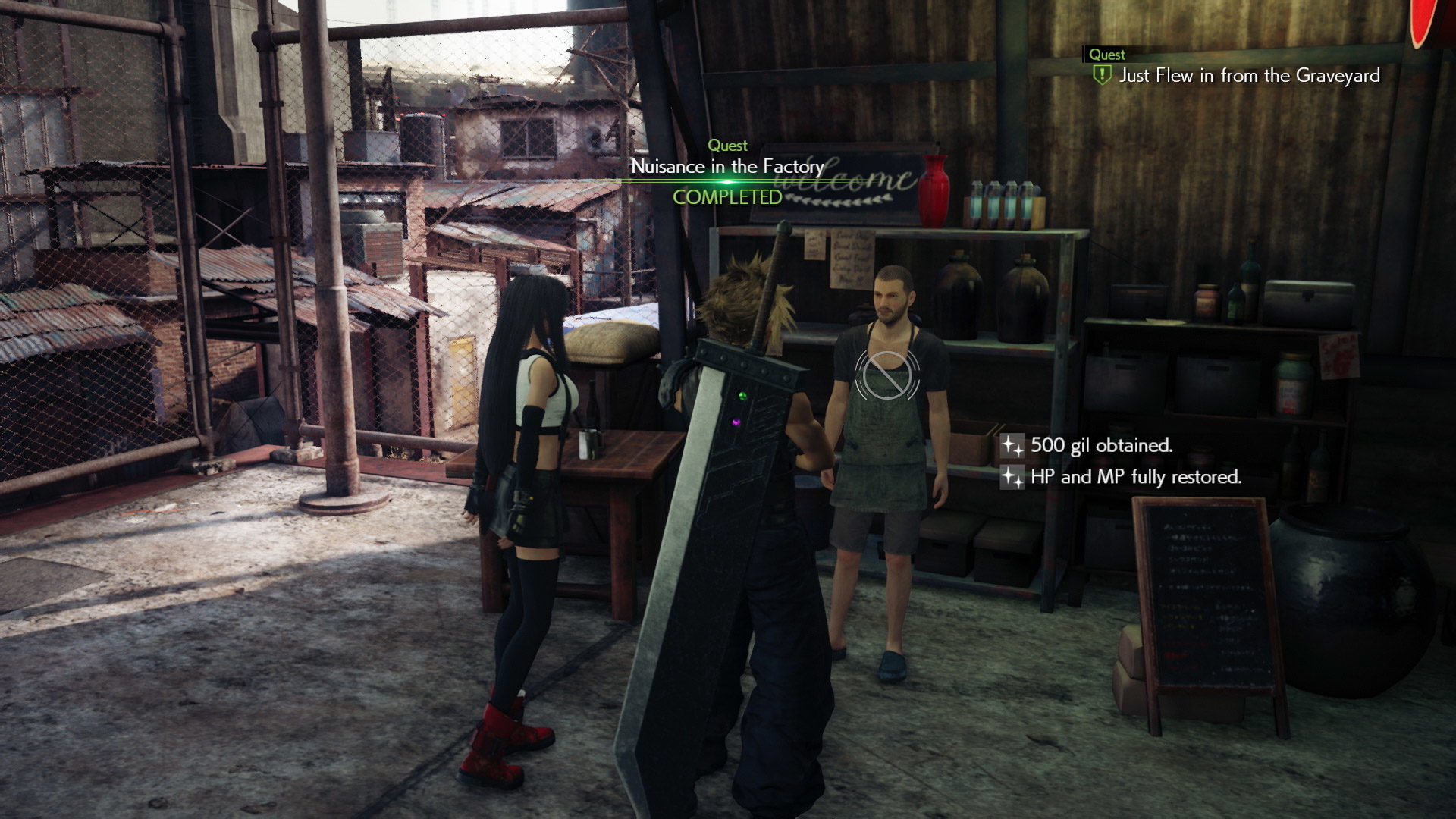
When it isn’t creating a more immediate sense of place, Remake’s increased fidelity also has the strangely welcome knock-on effect of creating hilariously incongruous moments. In one, just after blowing up a reactor, Cloud and Barret board a train and walk between seats filled with people wondering aloud who could’ve been responsible for the bombing. That they’re next to a man with a gatling gun for an arm and another with a sword the size of a redwood trunk strapped to his back doesn’t seem to cause them any alarm. The addition of well-acted voiceover also leads to instances of combat dialogue where, for example, Cloud might say, just before chopping down a mutant dog, “Any last words?” It’s silly, and adds a weirdo charm to a story that’s typically a bit too melodramatic for its own good.
The artistic direction and technical execution of the Remake’s expanded plotline remains, in all these instances, impressive until it’s misused to far worse effect than a funny mix of realism and absurdity. Again, the game’s biggest faults stem from its structure as an adaptation that turns the first part of a larger story into its very own game. While its creators have managed to make a satisfying, fairly complete narrative arc out of the original’s introductory act, Remake seems to be playing for time between plot points. Many chapters, which may involve nothing more complex than the characters getting from one place to another, end up devolving into hours-long detours through locations packed with time-sucking obstacles to overcome. One section involves switching between characters to open locked doors in an industrial maze; another sees them activating terminals to redistribute power to a central elevator. Elsewhere, they’re asked to find switches to drain water from sewer tunnels, climb a skyscraper made of bent steel, or fight a gauntlet of enemies in a makeshift coliseum. By the time the player’s come to the end of one of these frequent, multi-hour diversions, brain-dead from having just spent so long concerned more with repeatedly fighting the same set of monsters and running around an environment whose appearance has long outworn its welcome, any sense of urgency or momentum the main story once held has long since disappeared.
The contrivances introduced to thwart the party only get goofier as they’re reused again and again. Each metal bridge or catwalk must, it seems, break when it needs to be crossed, requiring a dramatic sequence where an Avalanche member extends a hand just in time to catch one of their pals before setting off to find a new way to their destination. Side missions, though occasionally used to flesh out Final Fantasy VII’s existing fiction, often follow suit, interrupting Cloud and crew’s typically life-threatening, time-sensitive goals with frivolous requests to collect items for someone or kill the monsters bothering their neighborhood. The game, basically, is packed with far more than it needs. It’s weighed down and made lumpy by long stretches of uneventfulness, where a suspension of disbelief is frayed by having to ask, yet again, whether any one group of people could end up trapped in so many sprawling labyrinths on their way toward every place they’re headed.
Long, arduous sections of combat and maybe a bit of puzzle-solving aren’t uncommon in role-playing games, but Remake’s hurt the pace otherwise established by its plot. In a series like Persona (or even in previous Final Fantasy games) “dungeons” exist as spaces apart from the normal flow of the storytelling. They’re discrete trials to be overcome, time organically set aside to devote to leveling up characters or gathering items in something like a suspended bubble. Remake’s are more akin to being asked to walk down a street and tripping over rocks set in the way every few feet. The effect, in the end, is of a story told by someone who keeps forgetting their place, offering barely related anecdotes instead of continuing on with what they were originally trying to say.
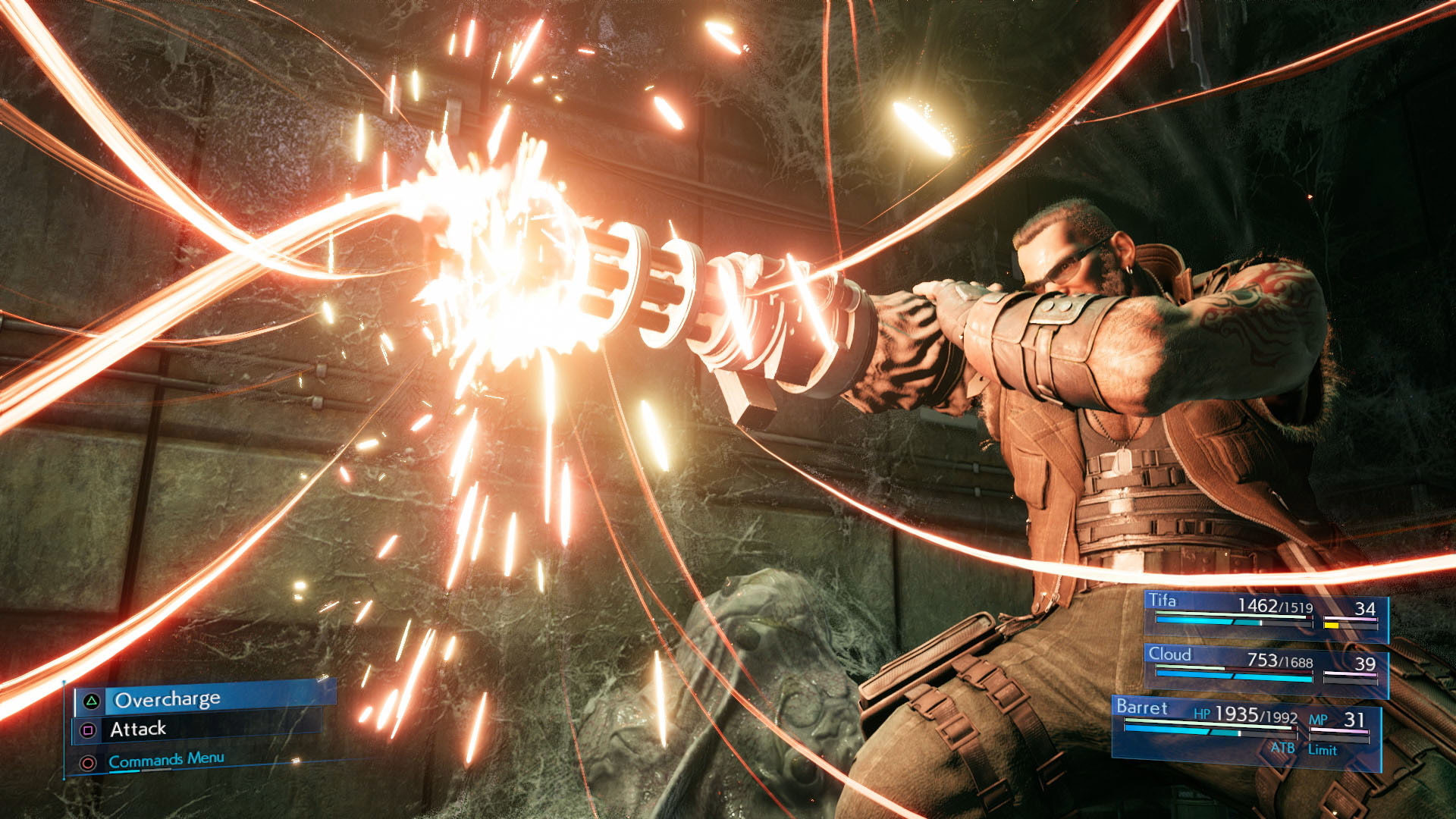
The question any remake must be able to answer is whether it can justify its existence by introducing anything its source material hasn’t already offered. What’s frustrating, in Remake’s case, is that so much of the new take on Final Fantasy VII satisfies this requirement while still botching the execution in ways that seem fairly avoidable. It’s a remake whose key scenes enhance the original’s drama and audiovisual imagination, capably balancing reverence for what came before with a willingness to reinterpret and introduce new ideas as need be. When it isn’t padding itself out, seemingly just to check the box of being a “full-length” role-playing game, Remake more than makes a case for playing it in addition to—or instead of—the 1997 Final Fantasy VII’s opening section. While its story ends with mysteries unsolved and character arcs in limbo, it still manages to stand as one of the most coherent and impactful Final Fantasys in years. And yet, despite these successes, it’s also a game that takes what worked as a condensed introduction to a full story and dilutes it with tens of hours spent meandering around between plot developments, draining them of much excitement in the process.
The impact of its best moments, then, is stretched too thin, its pacing skewed by overindulgence and busywork. It’s not hard to wonder if adapting a larger chunk of the game, allowing the Midgar section to exist without needing to be drawn out so much, would’ve created something that wasn’t paced quite so unevenly. That the strength of the material still comes through in fits and starts is testament as much to what was designed more than two decades earlier as it is to the remake’s interpretation of it.
Final Fantasy VII is still timely. It shows that maybe a lot of the same things the world was concerned with 23 years ago haven’t really been solved—that they’re still worth exploring in our art and entertainment. The planet, to quote the motley eco-terrorists themselves, is still in danger. It’s just too bad that the way its topics are explored isn’t presented with the level of urgency they warrant.
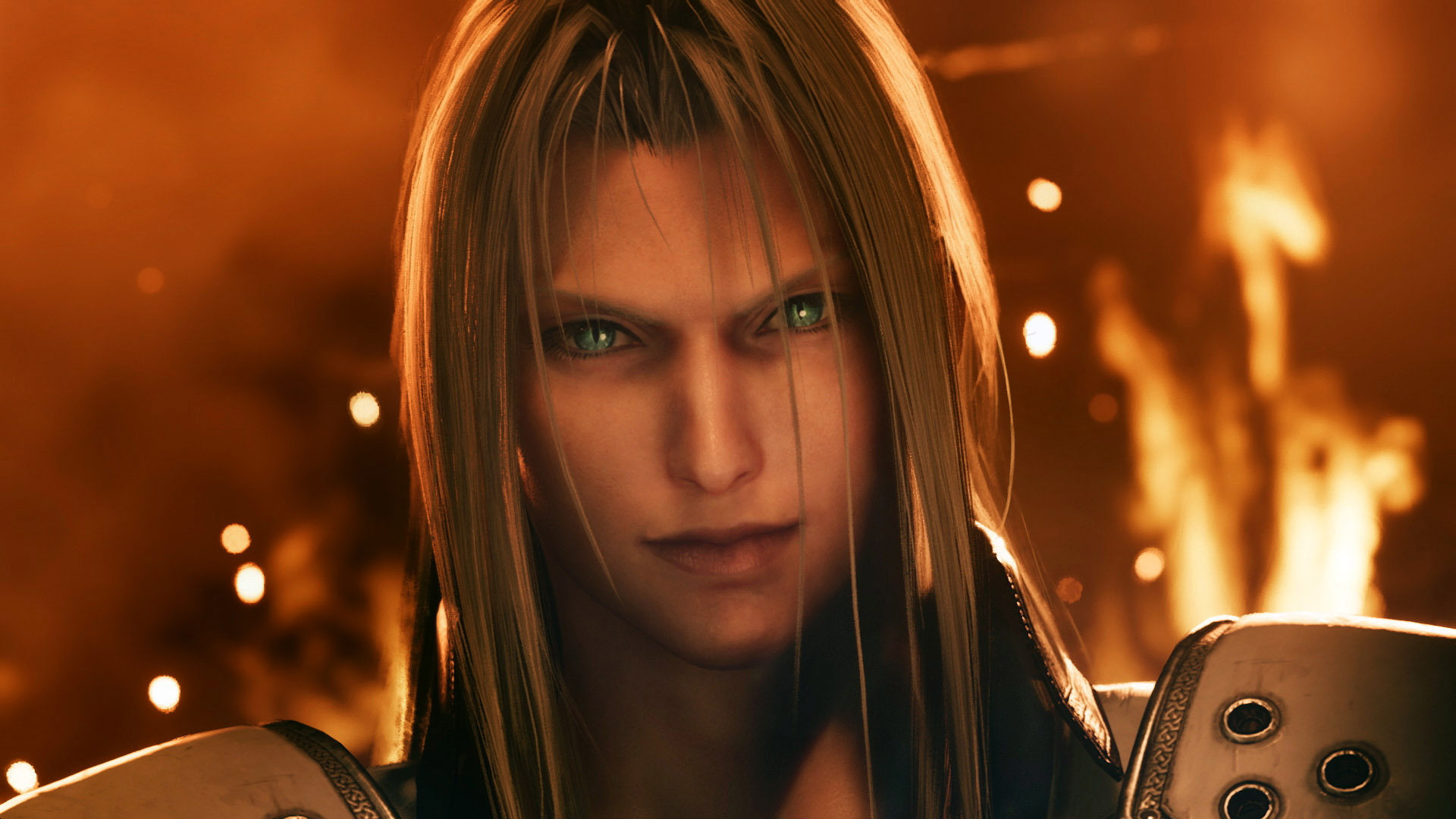
|
★★★☆☆
Final Fantasy VII Remake manages to balance the introduction of new concepts with faithfully recreations of the original game’s most memorable aspects, but it also unnecessarily pads out this first installment in a larger story with too much downtime between its most striking moments. |
Developer Square Enix Publisher Square Enix ESRB T - Teen Release Date 04.10.2020 |
| Final Fantasy VII Remake is available on PlayStation 4. Primary version played was for PS4. Product was provided by Square Enix for the benefit of this coverage. EGM reviews on a scale of one to five stars. | |
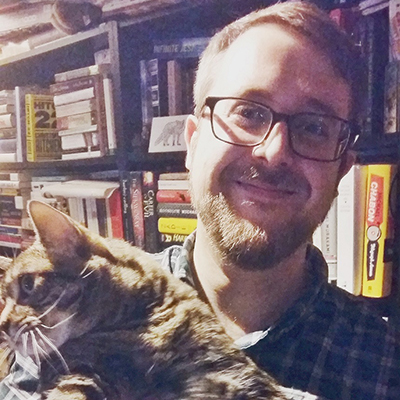
Reid McCarter is a writer and editor based in Toronto. His work has appeared at The AV Club, GQ, Kill Screen, Playboy, The Washington Post, Paste, and VICE. He co-wrote and co-edited the books SHOOTER and Okay, Hero, edits and contributes to Bullet Points Monthly, and tweets @reidmccarter.